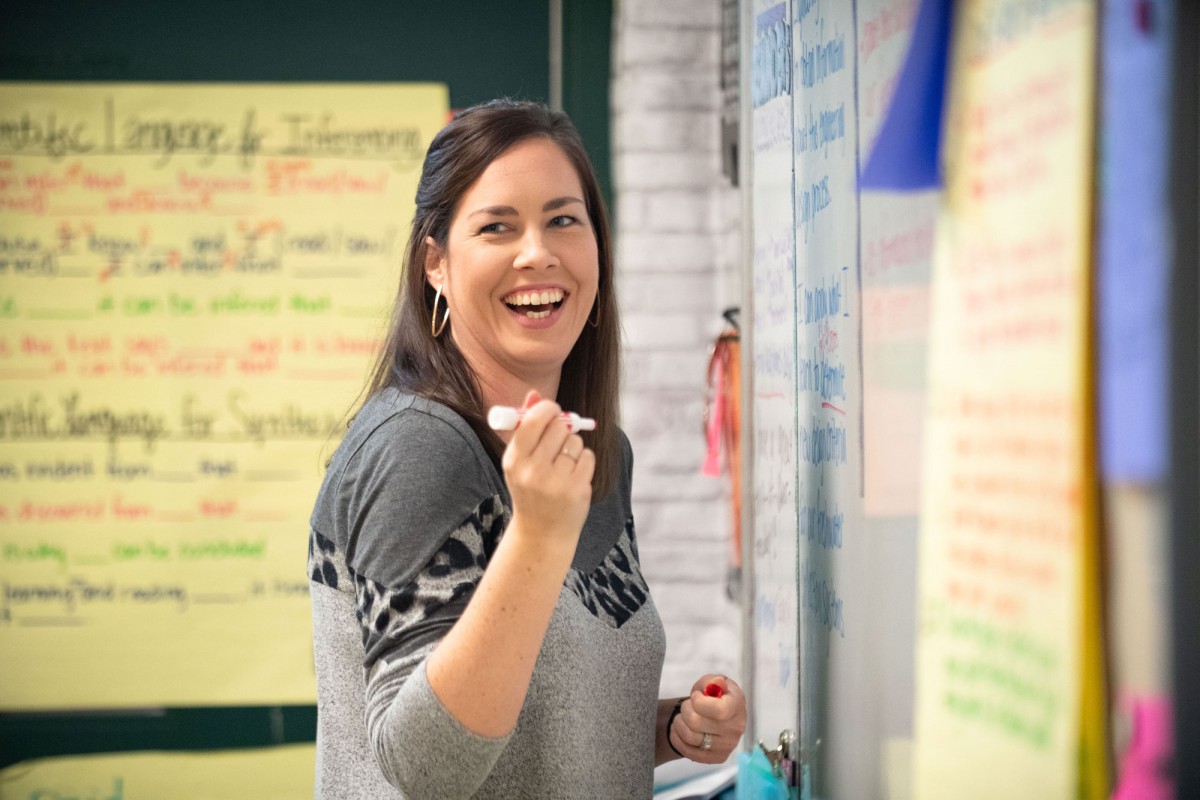Every School Wants to Support New Teachers. Here Is How to Do It Better, Right Now.
September 9, 2021

By: NIET Co-President Laura Encalade
First-year teachers already have a tough job. For those who are starting this fall – who likely had a disrupted student teaching experience and spent the last year of their preparation learning virtually – the job looks even tougher.
Every district and school leader wants to do a better job of supporting new teachers, especially in this moment. Today, NIET is releasing a new set of recommendations and strategies to strengthen the new teacher experience through teacher mentorship programs. Our research and experience have found that when new teachers are paired with a high-quality mentor who provides them with instructionally focused feedback, they are more likely to be successful in their first years – and more likely to stay in the classroom. Reducing teacher turnover also contributes to schoolwide academic success, and that is particularly key in schools with larger numbers of economically disadvantaged students, where students most need excellent instruction and where turnover tends to be the highest.
The paper provides a more comprehensive look at how to design effective mentorship programs, but there are two steps that district and school leaders can take that would make a big difference right now, even as the school year is already underway.
Focusing mentorship programs on clear instructional goals can help new teachers build their confidence and skillset as well as foster a school environment where all educators collaborate and are continuously striving to improve.Laura Encalade, NIET Co-President
First, mentorship programs for new teachers are increasingly common, but without clear expectations, it is easy for mentors and mentees to fall into an informal "buddy system." New teachers do need guidance as they learn team protocols and norms for their school, or even just how to work the copier. But they also need to learn from peers who can give them feedback that help them improve their instruction and improve student outcomes. After all, that's why they wanted to be in this profession. Focusing mentorship programs on clear instructional goals can help new teachers build their confidence and skillset as well as foster a school environment where all educators collaborate and are continuously striving to improve.
Second, it is also important that mentors are given the time, training, and compensation to do their job well. Teachers already have a lot on their plate, and too often, mentoring a new teacher (or teachers) is just added to the list. High-quality mentorship programs provide dedicated release time for mentors to observe and coach their mentees, and they equip them with skills and training to do that. For example, school leaders can schedule common planning times for mentors and the new teachers they support to review lesson plans or debrief instructional strategies. Training mentors together, and utilizing creative scheduling options to carve out collaborative time for mentors and new teachers, creates a more comprehensive and coherent program that aligns the feedback from mentors to ongoing coaching and professional learning for new teachers.
The new paper shares NIET's experience supporting mentorship programs in Texas and Louisiana and provides next steps and guidance for districts to consider in strengthening their existing mentorship programs. Even if it is not possible to fully revamp new teacher support right now, doing these two things – setting clear expectations for the type of support new teachers should receive, and protecting and valuing the time of those who are providing that support – could completely shift the experience this fall. Being intentional about providing time for meaningful collaboration between new teachers and mentors, and being intentional about providing instructionally focused feedback, will help this year go more smoothly, even with the uncertainties of COVID. If we can strengthen support for teachers who are starting in their first classrooms this fall, that could dramatically shift those teachers' desire to stay and increase their effectiveness, which is critical with the learning recovery underway.
We share much more in our paper today, which you can read on our website, and will provide additional commentary and guest blogs in the coming days from mentors and experts on our blog.